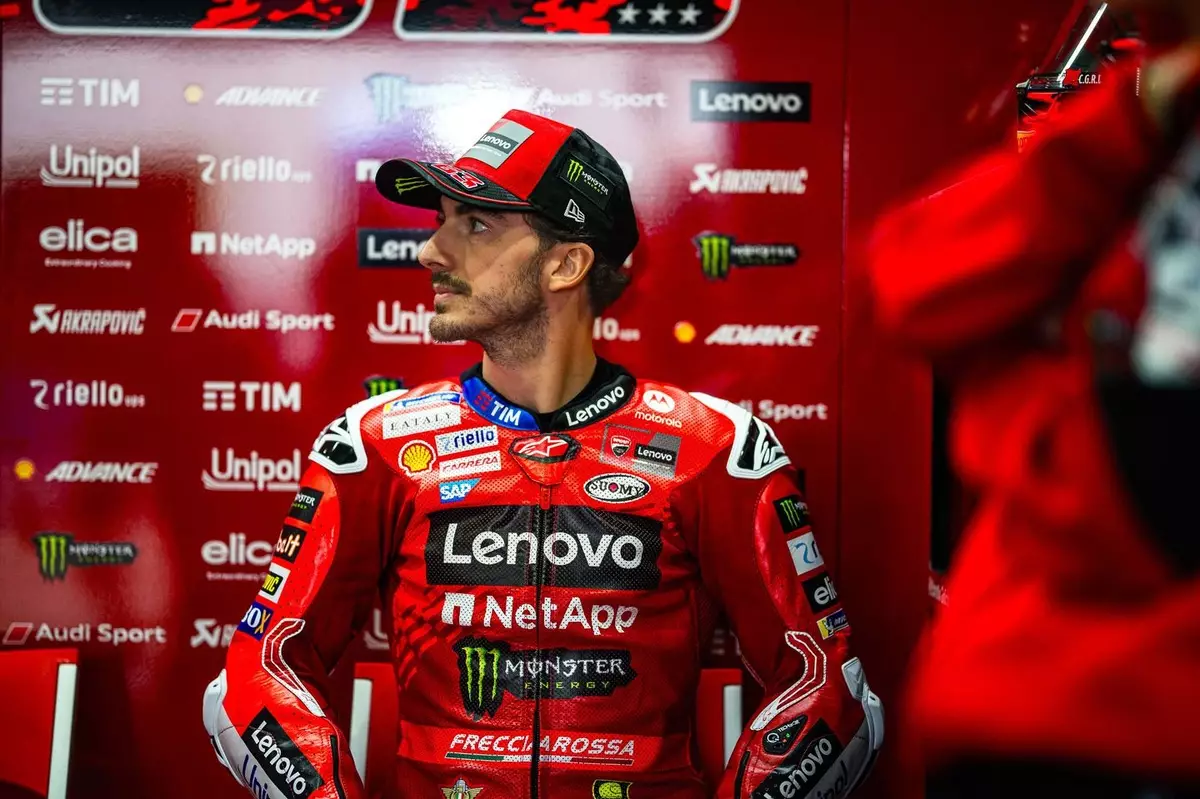Francesco Bagnaia, a name synonymous with speed and skill, finds himself entrenched in a struggle that both fans and competitors are keenly observing. Amidst the roar of engines and the clamor of racing enthusiasts, Bagnaia is wrestling with discomfort aboard the Ducati GP25. It’s a battle that resonates through the paddocks, hinting at a deeper narrative of expectation versus reality. Despite his impressive track record as a two-time world champion, Bagnaia’s current season poses formidable challenges, particularly as he contends with the raw prowess of his new teammate, the legendary Marc Marquez.
The Italian rider’s sentiments echo a poignant truth of competitive sport: success is not merely a function of ability but also of adaptability and consistency. Bagnaia’s early struggles this season are reminiscent of the tumultuous start he experienced in 2024. However, what intensifies the stakes this time around is the acute awareness of the league’s heightened competitiveness. The pressure is enormous, particularly with Marquez leading the charge, racking up victories while Bagnaia secures only fourth place finishes.
The Weight of Expectations
Bagnaia’s candidness reveals a psychological battle that many athletes face: the weight of expectations. “I was expecting more from myself,” he declared, illuminating the often unspoken pressures that accompany being a champion. The realization that a mere tenth of a second can be the difference between contention and obscurity is a harsh truth that permeates the ethos of racing. His performance, although commendable, raises questions about his current trajectory. In a sport where every millisecond counts, the gravitational pull of expectation can sometimes lead to a counterproductive focus on the minutiae instead of the broader race strategy.
The numbers speak for themselves. A points deficit of 31 to Marquez is not just a gap; it symbolizes a chasm of competitive struggle. The reality of Bagnaia’s situation becomes even grimmer when analyzed against the backdrop of Marquez’s impressive consistency on the track. While Bagnaia wrestles with his performance, Marquez’s ability to capitalize on every opportunity underscores a critical facet of professional racing: reliability in performance often supersedes raw speed.
Finding the Rhythm Again
At the core of Bagnaia’s reflections is a quest for rhythm and “feeling” on the bike—a term steeped in the language of racing that denotes an intuitive connection between rider and machine. Despite making progress over the recent race weekend, Bagnaia acknowledges that he is still grappling with the elusive essence that defines his game. “I am missing my feeling from the end of last year,” he states, illustrating the chasm between past success and present struggle and suggesting that the bike’s control, particularly in terms of the rear tyre, requires urgent attention.
His self-awareness is commendable; it reflects an ongoing commitment to improvement despite arduous times. Instead of succumbing to defeat, Bagnaia is gearing up to analyze footage, an approach that champions the idea of learning from experience. This mentality is critical not merely for immediate results but for sustainable long-term growth. Yet, it begs the question: how long can a champion accept fourth place as an adequate result before it begins to erode the very foundation of their confidence?
Looking Ahead: A Steep Climb at Austin
As Bagnaia prepares for the next challenge in Austin, he knows that history is not on his side. The Americas Grand Prix looms large, with its reputation as a circuit where Marquez thrives. The daunting prospect of recovering 31 points, especially against a competitor who has historically performed well on that track, increases the tension. For Bagnaia, the road ahead is not merely a matter of speed; it is a test of resolve, adaptability, and an innate determination to rediscover what makes him great.
Despite the steep uphill battle, the specter of potential remains palpable in Bagnaia’s voice. “But I know how fast we can be,” he affirms, hinting at a belief in his team and their capabilities. It’s a rallying cry for both himself and his supporters—a testament to resilience in the face of adversity. The championship is far from over, and as they say in racing, it’s not just about the destination, but the journey that shapes the champion.


Leave a Reply